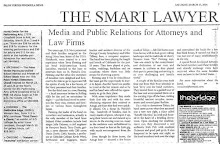Journalists, editors and producers decide what the story is. You do not.
The job of the news media is to gather all of the facts that they think are important, highlight the ones they feel are most interesting, and then package them in the way they hope will be most enticing to listeners or readers. Their job is not to create a venue for you to tell the story you want to tell. News is a business, not a public service.
However, like most situations in life your interactions with the media can still be tweaked to your advantage.
Do respond promptly to news media inquiries with concise, well-thought-out talking points. Only about three. Write them down. If the journalist changes the subject, transition back to your talking points. Do not be rude, but be firm. Do not engage in an aimless 45 minute chat because that only give the journalist an opportunity to ignore most of what you are saying and to cherry pick the few formulaic facts that will fill in the blanks for a pre-existing story template. And do not forward a brief-length written response or *any* pleading by way of answering questions unless it is requested. Journalists will almost *never* read pleadings unless they are fact checking [spelling of names, dates, etc]. They do not have the time to read long descriptions of fact patterns or legal analysis.
The journalist gets to choose what is ‘news,’ but you can control the pool of choices you make available.
Quick tips:
1) Give the news media only what you want them to have. Have three brief talking points ready and stick to them.
2) Be careful that what you give them is timely, helpful and safe.
Your reputation is your most valuable asset
Subscribe to:
Post Comments (Atom)







No comments:
Post a Comment